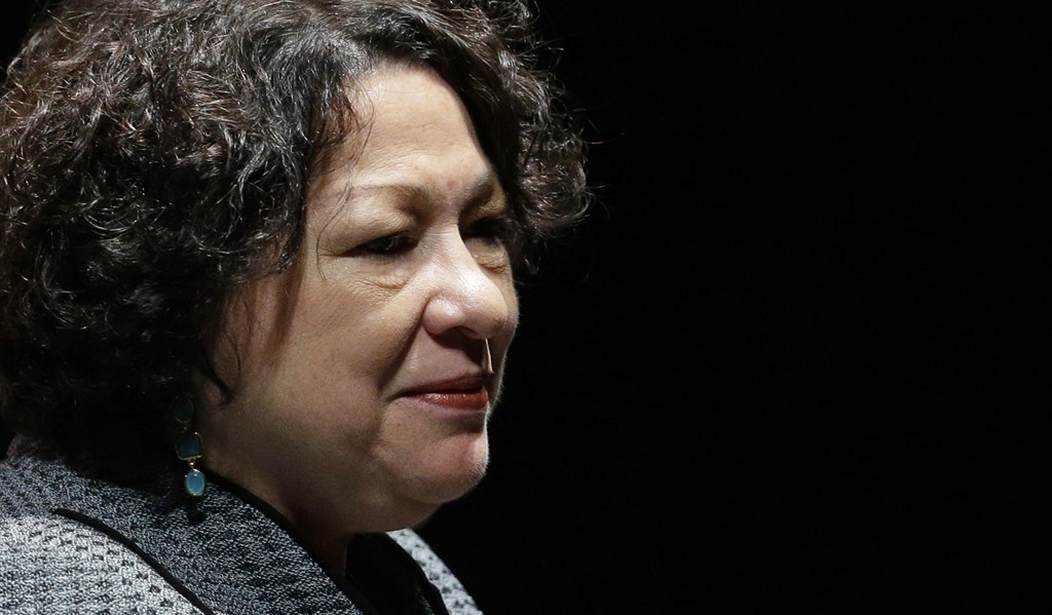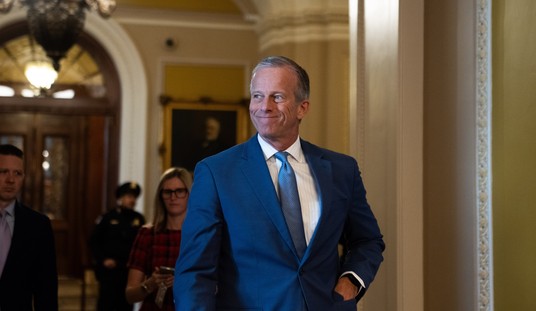Amidst all the opinions out of the nation's highest court on Tuesday -- majority and minority, concurring in part and dissenting in part, or just too vague to classify -- was there any clear message? Yes. Definitely. But you had to peer through all the legal haze, an admix of angry rhetoric and discreet evasions, in order to divine where the Supreme Court of the United States is headed on the always simmering issue of race-based admissions to the country's colleges and universities. But it's finally headed in the right direction, however many zigs and zags the learned justices may have taken along the way.
If you listen carefully to the general drift of all these different decisions, that sound you can hear in the distance, maybe only the far distance, is the long awaited death knell for racial preferences in higher education. Yes, time is running out for all those racial quotas -- for that is what has always lurked behind the euphemism Affirmative Action, which can have decidedly negative impact on those students who don't belong to the favored race, ethnicity, class or whatever bias you prefer.
. .
If the essence of law is not logic but experience, to borrow an observation from the ever-observant Oliver Wendell Holmes, then this assemblage of legal opinions pro and con and in-between indicates that experience is slowly catching up to logic where racial preferences are concerned. And ending them.
. .
From its beginning, what is called affirmative action has had a paradox at its center: Any preference given applicants who belong to the preferred group amounts to discrimination against those who don't. That's always been the essential injustice of Jim Crow systems no matter what elevated names they are assigned -- whether "separate but equal" or "affirmative action" -- and no matter which Americans they favor, and so necessarily disfavor others. There's no getting around that essential truth no matter how hard judges like Sonia Sotomayor or Ruth Bader Ginsburg try.
Recommended
. .
Justices Sotomayor and Ginsburg are scarcely the first to deck out an essential injustice in the language of high principle. It's almost a tradition in American jurisprudence. See the works of Roger B. Taney (he of the infamous Dred Scott decision) or Henry B. Brown, author of Plessy v. Ferguson almost half a century later, from which all kinds of racial segregation flowed. Happily, there's always a great if lone dissenter like John Marshall Harlan who sees right through their game, or just a waffler like Anthony M. Kennedy who blows the whistle on it, as he did in this week's majority opinion.
. .
Yes, there are instances where some forms of racial discrimination may be justified on a temporary basis in order to break up a whole, greater system of racial discrimination long embedded in law, custom and popular passion. Think of the crosstown busing that was necessary -- for a while -- to end racial segregation in the nation's schools and so further liberty and justice for all in this one nation all too divisible.
Unfortunately, the legal expedients we're told are only temporary have a way of becoming permanent, dragging on for years, even decades, as busing did. Only now may such arbitrary measures be fading, though not till after they ushered in an era of resegregated school systems in city after city. Affirmative action, too, has tended to become a permanent institution, with its own overstaffed bureaucracy and vested interests, in all too many of the country's institutions of "higher" learning, which wind up practicing a low form of racial discrimination.
That's why the most hopeful comment in this miscellany of opinions the Supreme Court handed down Tuesday came from one of the only two justices on the court who would prolong affirmative action/racial quotas in American college admissions. The comment was embedded deep in Justice Sotomayor's outburst disguised as an impartial opinion, and you might have had to listen carefully to the summary of it she read from the bench to discern the ray of hope deep in its glowering text. It came when she accused the court of "permitting the majority to use its numerical advantage to change the rules mid-contest and forever stack the deck against racial minorities in Michigan."
Michigan is where the voting public dealt racial preferences a major blow by outlawing them in that state's public universities. As if the voters had realized that the simplest, most direct way to end racial discrimination in college admissions is to end racial discrimination in college admissions. How about that?
But that's just the kind of simple justice Madam Justice Sotomayor deplored in her opinion -- except, except for one brief comment that implied some hope for justice in the future. Did you catch it? It came when she was berating the court for changing the rules of the game "mid-contest." Hmm. So if the debate over affirmative action has reached its midpoint, that means this pernicious practice must have had a beginning and, yes, will someday have an end. And someday all students applying for admission to a state university will be judged without regard to their race or other irrelevancies. What a glorious day that will be, and this mixed bag of decisions out of the court Tuesday indicates that day is coming, however slowly.
. .
Yes, the college admission process can be rigged to benefit your favorite minorities, but only at the cost of penalizing others. The question is Cui bono? Who benefits? (This being a legal discussion, it would not be complete without a Latin phrase or two.) Black and Hispanic applicants may enjoy an advantage under affirmative action, but Jews and Asian-Americans need not apply. Indeed, one of the most evident results of affirmative action is to limit their numbers at the country's more prestigious universities.
Just why justices like Sonia Sotomayor should think it awful to "stack the deck" against certain minorities but not against others may be one of those mysteries best left to her own law and conscience, for we can't think of any ready explanation for her selective indignation besides the old, obvious one: blind, invincible prejudice.
The wheels of justice, they say, grind slow but exceeding fine. Sometimes so fine that justice is hard to discern. But the day of reckoning for affirmative action is coming, however slowly and contentiously. And it'll be a great day when it finally arrives.























Join the conversation as a VIP Member